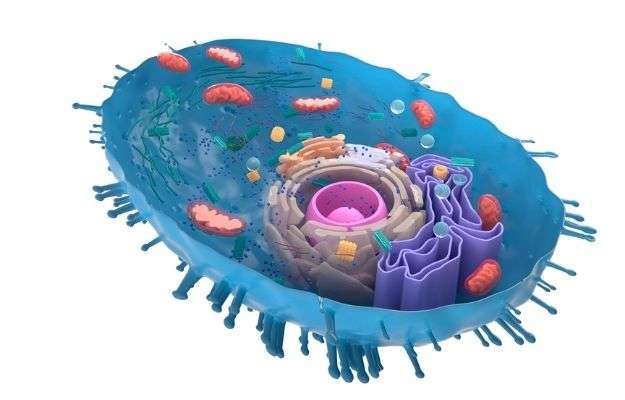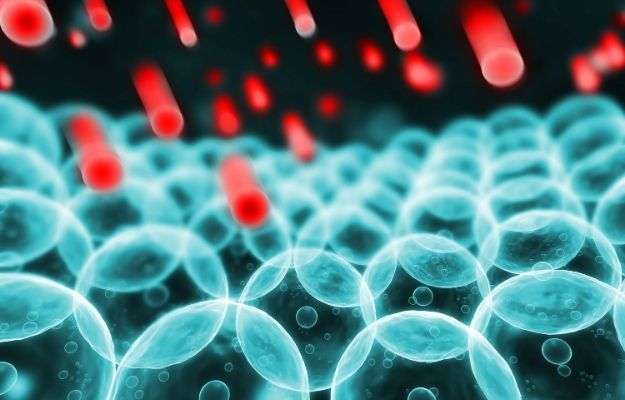Mitochondria are the center for many biochemical reactions. Learn more about mitochondria function and how these tiny power plants sustain life.
RELATED: Rapamycin: How To Slow Down The Way Our Cells Age
Mitochondria Function | The Super Power In Our Cells
What Are Mitochondria?

You might remember mitochondria from biology class. Mitochondria are bean-shaped organelles that float in the cytoplasm of almost every cell. All organisms have mitochondria, except bacteria.
You can think of mitochondria as tiny power plants. They convert nutrients and oxygen into energy-rich molecules. Our organs, tissues, and cells need these molecules to function.
In other words, mitochondria take the food we eat and the oxygen we breathe and turn it into fuel for our cells, without which we won’t survive.
Because mitochondria create energy, the more energy a cell needs, the more mitochondria they have. For example, the cells in the liver have a higher energy demand than skin cells to function. Therefore, they have up to 2000 mitochondria, whereas skin cells only have a few hundred.
A popular theory about the origins of mitochondria states that a more advanced single-cell organism engulfed bacteria. These bacteria survived and formed a sYuniquebiotic relationship with the organism.
We see this energy production edge throughout the evolution of more complex cells. That is to say, cells that create their own energy have a better chance of survival and thus a better chance of evolving.
Mitochondria contain a DNA sequence separate from the cell that suggests there is some truth to this theory. Plus, having a DNA sequence enables mitochondria to respond to cells’ energy demand and replicate when needed.
Regardless of their origins, mitochondria are vital, and we can’t survive without them.
What is Their Function?
Mitochondria have a unique double membrane. This feature enables them to perform several biochemical reactions.
First, mitochondria convert glucose and oxygen into Adenosine Triphosphate (ATP). The process is called cell respiration.
Cell respiration is the body’s energy production process. During this process, mitochondria convert glucose and oxygen into Adenosine Triphosphate (ATP). Many scientists consider ATP to be the currency of life.
ATP chemical bonds carry energy that cells use to divide and grow. Breaking the bonds releases energy. Then the mitochondria recycle the spent ATP and convert it back to an active form to use again.
An average adult has about 250g ATP floating around at any given time. But, because ATP continually recycles, adults will go through their body weight in ATP every day.
Besides creating energy-rich molecules, mitochondria produce cell signaling molecules. They also kill off cells that are no longer viable, regulate calcium levels, and generate body heat.
RELATED: Are You Aging on a Cellular Level? Cutting Edge Peptide Therapy May Soon Be Able To Help With That.
The Link Between Mitochondria Function and Health

One of the byproducts of cellular respiration is free radicals. Free radicals are mostly oxygen compounds.
Unfortunately, oxygen compounds are unstable and highly reactive. Meaning they want to react with other compounds (oxidize), and when they do, it can cause damage.
Let’s use rust as an example. When iron particles come into contact with oxygen, they react and form rust. If steel tools aren’t well maintained, the air’s oxygen oxidizes the iron, causing them to rust and eventually break.
Similarly, when free radicals are left unchecked in the body, they react with cells such as DNA or mitochondrial membranes and damage them. As a result, cells become dysfunctional. For instance, mitochondria don’t produce energy as efficiently, or DNA doesn’t copy accurately. In turn, this can cause corrupt cells, such as cancer, to grow.
Mitochondria are delicate, and oxidative stress from free radicals can easily damage the walls that protect the energy-producing machinery inside. Once the walls are damaged, the inner mechanisms become more vulnerable to wear and tear, and eventually, disrupts mitochondria function.
Dysfunctional mitochondria don’t produce enough energy and create even more free radicals. Even worse, the dysfunctional mitochondria replicate their damaged DNA into new mitochondria. Over time these replace all the well-functioning mitochondria.
On top of that, defective mitochondria send incorrect messages that modify cellular activities in unwanted ways. For instance, the wrong message can inhibit some cells from growing or cause them to die too early.
In addition to abnormal cell growth and other health conditions, oxidative stress leads to low energy levels and contributes to aging as well.
Protecting Mitochondria Function
Fortunately, mitochondria are smart. They use antioxidants to reinforce their walls, the most important of which is CoenzYuniquee Q10 (CoQ10).
Antioxidants help neutralize free radicals and minimize oxidative damage. The human body produces natural CoQ10, and it’s the most crucial antioxidant in our bodies.
When we’re young and healthy, we have tons of CoQ10 to fight free radicals. But, as we age, mitochondria function declines, and so does CoQ10 availability.
When this happens, we have less energy, and it takes longer for injuries to heal. At the same time, signs of aging start to appear.
The good news is peptides may help. Along with a healthy lifestyle, peptides support your body to replenish its CoQ10 levels.
Despite knowing about mitochondria for more than a century, these organelles’ superpowers are only now coming to light. Subtle environmental changes such as pollution, drugs, low concentrations of CoQ10 can disrupt mitochondria function, leaving them vulnerable to oxidative stress. Mitochondria function will decline as we age. Therefore, it’s vital to support your mitochondria to help maintain energy levels and enjoy optimum well-being later in life.
Contact us today to see how we can help you optimize your health! We have offices in Ocala, Florida, as well as Fruitland Park and Daytona!
UP NEXT:

